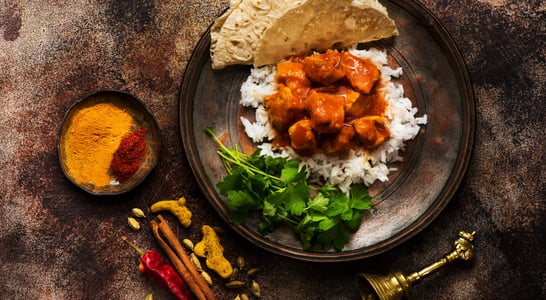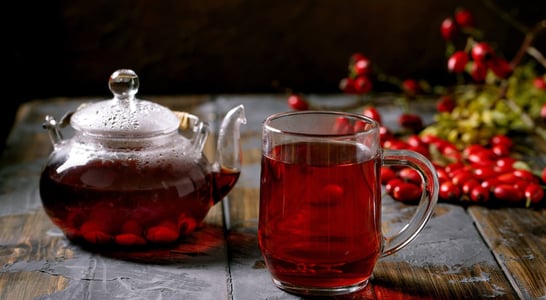
Plough Monday
Celebrating a rural tradition, lively customs mark a community's spirit during festivities at the beginning of the year.
Plough Monday arrives every year just as the festive December holiday events and New Year’s celebrations wind down. This occasion, a time-honored celebration that marks the return to agricultural work in parts of Britain, is steeped in tradition and offers a glimpse into rural customs that have been part of British culture for centuries.
History of Plough Monday
Plough Monday originated in England’s East Midlands and East Anglia regions during the medieval days. This day traditionally signaled the end of the Christmas holidays and was when the country’s hard-working farm laborers returned to their jobs. But they had a problem — their holidays were unpaid time off, and they were short on money. But they returned to work anyway, as agricultural work was hard to find then. So those cash-strapped workers used Plough Monday to collect donations from the more affluent members of the community.
The celebrations meant that the farmworkers paraded through villages with a plow, accompanied by music, dancing, and performances. To maintain anonymity and add an element of fun, participants often disguised themselves, using soot to cover their faces. This practice allowed them to engage in playful mischief, such as theatrically threatening to plow up the gardens of those who were stingy with their donations.
Over time, Plough Monday came to include a variety of customs. One of the most beloved traditions was the addition of ‘Molly dancers’ — performers who engaged in a unique form of English folk dance. The day also featured the performance of plays similar to the Christmas Mummers Plays; each show depicted themes of death and resurrection. Sounds dreary, but both themes were common in seasonal folk traditions.
Despite a decline in the 18th century, Plough Monday has seen a revival during our modern times, particularly in its regions of origin. Today, it is celebrated with a blend of traditions and contemporary festivities.
How to Celebrate Plough Monday
Celebrating Plough Monday today can be a delightful way to connect with historical traditions. It also gives a small peek into rural British culture. Here are some ways to join in the festivities:
Attend Local Celebrations
Feel like a trip just after the New Year commences? Visit areas like East Anglia and the East Midlands during Plough Monday, which offers an authentic experience. Towns such as Maldon in Essex and various cathedrals like those in Durham and Exeter often host traditional celebrations. These usually include Molly dancing and Plough plays. These events provide a vibrant and lively way to observe the day.
Participate in or Watch Plough Plays
Plough plays, a key element of Plough Monday, are performed in various communities. These folk plays involve local actors and often include themes of good overcoming evil, reflecting the agricultural cycle of death and rebirth. Watching or participating in these plays is a great way to engage with the cultural heritage of the day.
Explore Agricultural Traditions
For those interested in the historical facets of Plough Monday, a trip to local farms or agricultural museums can be enlightening. It can be very rewarding to learn more about farming practices and rural life that Plough Monday originally celebrated. The best part is that you needn’t travel to the UK but can join the fun in your region.
Engage in Community Activities
Many communities organize events such as dances, workshops, and meals to celebrate Plough Monday. Participating in these activities can be a fun and inclusive way to experience the day’s traditions.
Learn and Share
Educating oneself about the history and significance of Plough Monday and sharing this knowledge with others helps keep the tradition alive. Whether through social media, blogs, or community talks, spreading awareness about this unique celebration contributes to its preservation.
Prepare Traditional Plough Monday Foods
Plough Monday was not just about parades and plays; it also had a culinary aspect. Traditional foods associated with this day can be a delightful way to engage with the celebration. One such dish is Plough Pudding, a hearty, savory suet pudding filled with pork, onions, and bacon, symbolizing the sustenance needed by the hungry farm workers. Another traditional fare is a Ploughman’s Lunch, a simple, rustic meal typically consisting of bread, cheese, pickled onions, and cold meats. Preparing these dishes at home or organizing a Ploughman’s Lunch gathering can be a tasty way to honor the day’s agricultural roots.
Host a Plough Monday Themed Dinner Party
Organize a dinner party with a Plough Monday theme. Decorate the dining area with rustic, farm-related décor like miniature plows, sheaves of wheat, or agricultural tools. Serve traditional dishes like Plough Pudding, hearty stews, and root vegetables, reflecting the kind of robust meals that the farm laborers would have appreciated after a hard day’s work. You can also include modern interpretations of these dishes to cater to diverse palates. During the dinner, share stories or facts about Plough Monday’s history and its significance in agricultural communities, making the meal both educational and enjoyable.
Also on ...
View all holidaysKiss a Ginger Day
Get up close and personal with a redhead, show appreciation for the gingers in your life or give your hair some TLC with styling and products.
National Curried Chicken Day
Satisfy your taste buds with tender chicken and fragrant spices cooked to perfection in a comforting, warm bowl of savory goodness.
National Youth Day
Young hearts, limitless energy, and endless possibilities — youth is a time for growth, exploration, and self-discovery.
National Hot Tea Day
A sip of warm comfort, a moment of calmness, a way to connect with friends — from spicy chai to floral blends, there's a tea for every mood.
We think you may also like...
Africa Industrialization Day
A transformative wave bringing innovation, progress, and economic growth to new heights. Exciting times lie ahead!
National Handshake Day
From business deals to sportsmanship, a good handshake conveys confidence, warmth and professionalism, making a lasting first impression!








